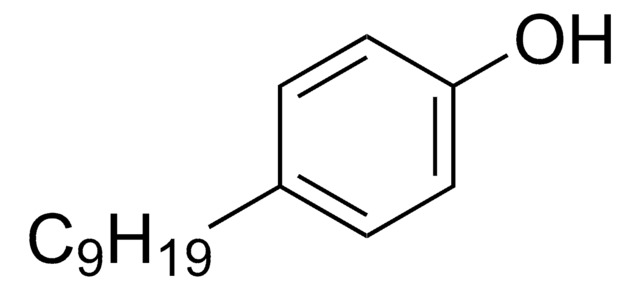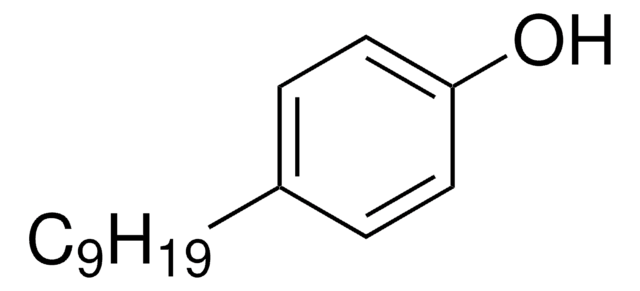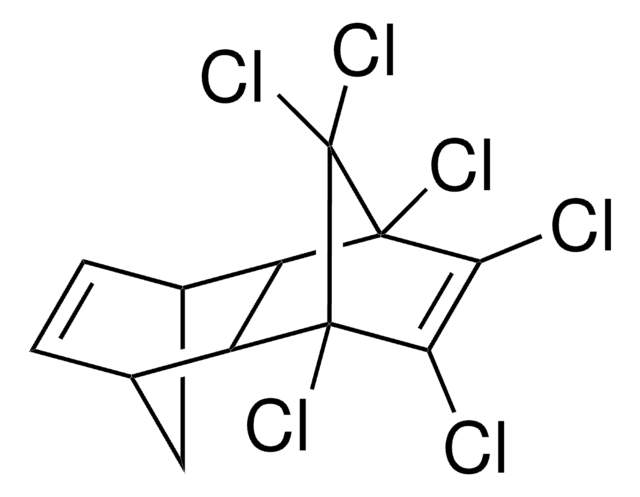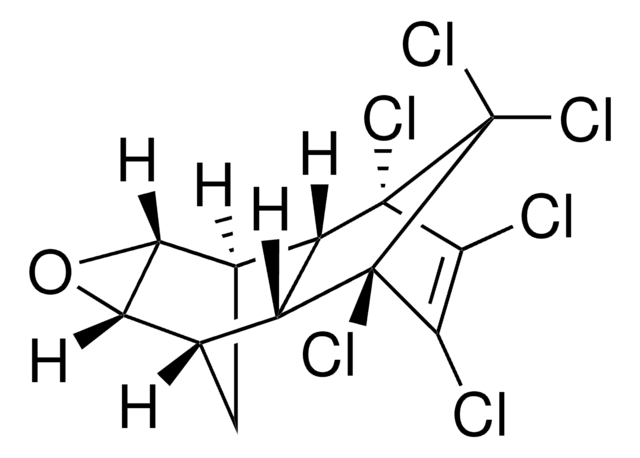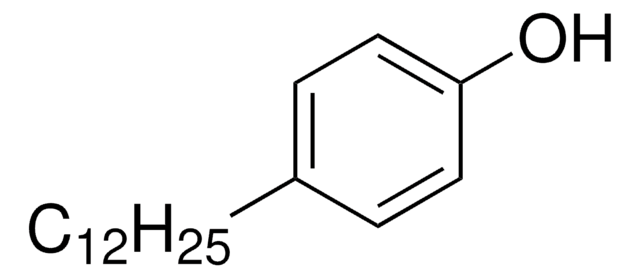46405
4-Nonylphenol
PESTANAL®, analytical standard
Synonym(s):
4-n-Nonylphenol
About This Item
Recommended Products
grade
analytical standard
Quality Level
product line
PESTANAL®
shelf life
limited shelf life, expiry date on the label
technique(s)
HPLC: suitable
gas chromatography (GC): suitable
application(s)
agriculture
environmental
format
neat
SMILES string
CCCCCCCCCc1ccc(O)cc1
InChI
1S/C15H24O/c1-2-3-4-5-6-7-8-9-14-10-12-15(16)13-11-14/h10-13,16H,2-9H2,1H3
InChI key
IGFHQQFPSIBGKE-UHFFFAOYSA-N
Looking for similar products? Visit Product Comparison Guide
Application
Legal Information
Signal Word
Danger
Hazard Statements
Precautionary Statements
Hazard Classifications
Acute Tox. 4 Oral - Aquatic Acute 1 - Aquatic Chronic 1 - Eye Dam. 1 - Repr. 2 - Skin Corr. 1B
Storage Class Code
8A - Combustible corrosive hazardous materials
WGK
WGK 3
Flash Point(F)
235.4 °F - closed cup
Flash Point(C)
113 °C - closed cup
Personal Protective Equipment
Regulatory Listings
Regulatory Listings are mainly provided for chemical products. Only limited information can be provided here for non-chemical products. No entry means none of the components are listed. It is the user’s obligation to ensure the safe and legal use of the product.
PRTR
Class I Designated Chemical Substances
JAN Code
46405-VAR:
46405-100MG:4548173366876
46405-1EA:
46405-BULK:
Choose from one of the most recent versions:
Already Own This Product?
Find documentation for the products that you have recently purchased in the Document Library.
Customers Also Viewed
Articles
Nonylphenols (NP) are ubiquitous substances that have been detected in highly diverse foodstuff. As breakdown products of nonylphenol ethoxylates, NP could end up in the aquatic environment. This article presents a rapid method for NP detection in surface water by planar solid phase extraction – planar yeast estrogen screen (pSPE-pYES).
Our team of scientists has experience in all areas of research including Life Science, Material Science, Chemical Synthesis, Chromatography, Analytical and many others.
Contact Technical Service